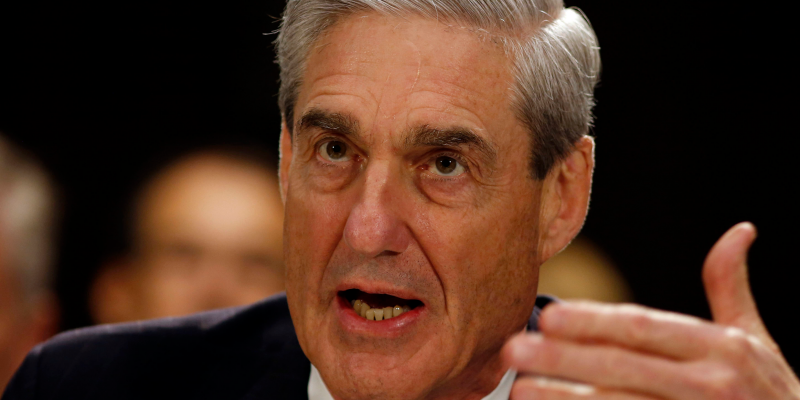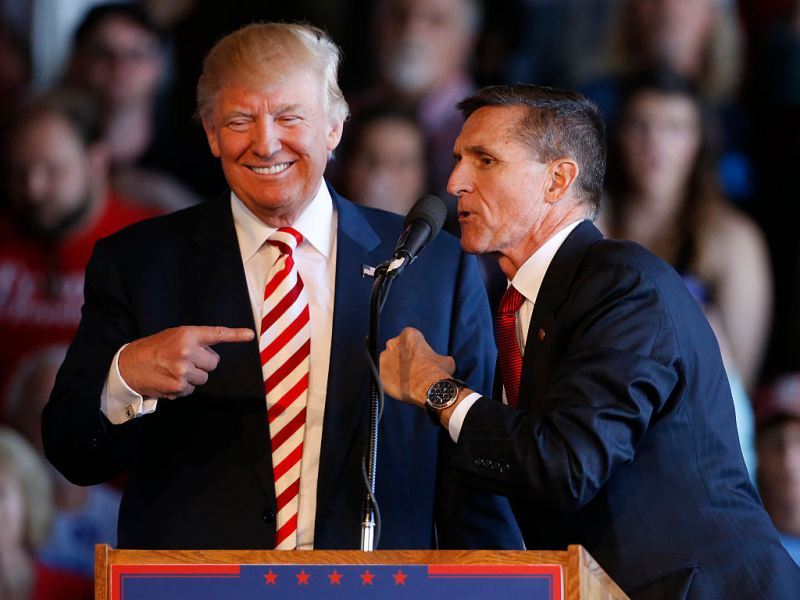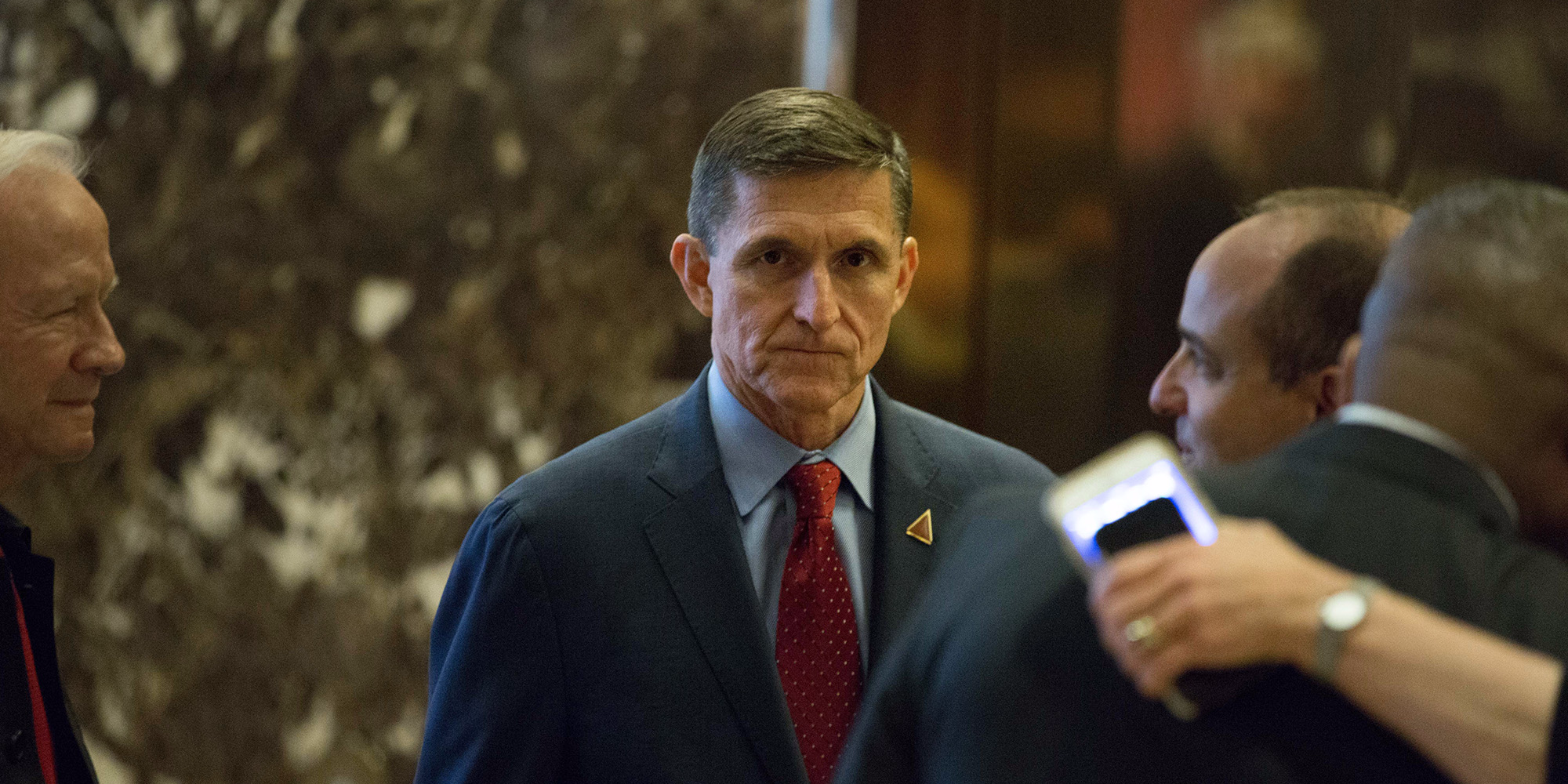- Robert Mueller, the special counsel leading the Russia investigation, is looking into Bijan Kian, a former business associate of former national security adviser Michael Flynn.
- Mueller is primarily interested in gauging what role Kian played in Flynn Intel Group’s lobbying activity for a Turkish businessman with ties to Turkish President Recep Tayyip Erdogan.
- Flynn has come under scrutiny because of his contacts with Russian officials and his work as a foreign agent, and recent revelations could mean Mueller sees Flynn as his next target.
Robert Mueller, the special counsel leading the Russia investigation, is looking into an associate of the former national security adviser Michael Flynn, NBC News reported Wednesday, in a likely sign that the inquiry is steering toward Flynn’s activities.
Mueller is tasked with looking into Russia’s interference in the 2016 election as well as whether any members of President Donald Trump’s campaign colluded with Moscow to tilt the race in his favor.
When it comes to Flynn, Mueller is focused mainly on his work as a foreign agent and his lobbying activities, throughout the latter half of 2016, for a businessman with ties to the Turkish government.
Flynn was paid $530,000 last year by the businessman, Ekim Alptekin, who is a member of a Turkish economic-relations board run by an appointee of Turkish President Recep Tayyip Erdogan. Alptekin is also the head of Inovo, a consulting firm.
Flynn's firm was tasked with fomenting dissent inside Turkey and with lobbying the US government to extradite Fethullah Gulen, a Turkish cleric living in Pennsylvania who Erdogan believes is responsible for planning last year's attempted coup.
Flynn Intel Group was required, under the Foreign Agents Registration Act, to register as a foreign agent as soon as it secured the contract with Inovo, but it did not do so until months later. It acknowledged in a filing that its work could have "principally benefited" Turkey.
The latest focus for Mueller, NBC News reported Wednesday, is Bijan Kian, a former business partner of Flynn's. Mueller is reportedly seeking to gauge what role, if any, Kian played in securing the Inovo contract for Flynn Intel Group. The special counsel's office also wants to know whether Kian has any information about other lobbying efforts the firm may have undertaken that have not yet been disclosed, NBC News said.
Sources told NBC News that prosecutors were also interested in a September 20, 2016, meeting between Kian, Flynn, and the pro-Russia congressman Dana Rohrabacher.

Mueller turns up the heat on Flynn
The Russia investigation has ramped up in recent weeks, particularly after a federal grand jury indicted Trump's former campaign chairman, Paul Manafort, and one of his associates, Rick Gates, in October on 12 counts related to money laundering, financial crimes, and their work as foreign agents.
Since then, multiple media reports have suggested that Mueller is zeroing in on Flynn, who legal experts have said could be increasingly vulnerable in the Russia investigation.
Mueller's team subpoenaed the lobbying firm SGR LLC in August after Flynn Intel Group hired the firm ostensibly to "promote a good business climate in Turkey," The Washington Post reported. Flynn's firm hired SGR as part of its work with Inovo.
Though Flynn Intel Group's initial stated goal in hiring SGR was to foster a stronger business climate in Turkey, it was later forced to indicate that it brought SGR on to "raise concerns" to the US about Gulen.
At the beginning of November, NBC News reported that Mueller had enough evidence to indict Flynn and his son, Michael Flynn Jr.
A former business associate of Flynn's said the younger Flynn had a prominent role in Flynn Intel Group's day-to-day operations and served as his father's chief of staff, and Mueller could be turning up the heat on the younger Flynn to prompt his father's cooperation in the investigation. CNN also reported that Flynn and his wife, Lori, were worried their son could get caught in the crosshairs of the investigation.
It's unclear who the source of the NBC News report about a possible Flynn indictment was, but legal experts floated the possibility that the leak came from Flynn's defense team, which could have been using it in an effort to secure a pardon from Trump.

Patrick Cotter, a former federal prosecutor who is now a white-collar defense attorney at Greensfelder, Hemker & Gale, P.C., said earlier this month that the younger Flynn's aggressive social-media campaign against Mueller and the Russia investigation suggested that he refused to flip and was hoping for a presidential pardon. Cotter also pointed to Trump's apparent loyalty to Flynn, who was one of his most prominent campaign surrogates before becoming national security adviser.
"The president of the United States, who has virtually unlimited pardon power, has gone on the record, in public, and said he doesn't think Flynn should be prosecuted," Cotter said.
"If you're Flynn's attorney, the possibility of a pardon is something you'd think about," he added. "It's an amazing thing to have the president, before your client is charged, saying publicly that he doesn't think they should even be investigated, much less charged."
Flynn was forced to resign in February when it emerged that he had misled Vice President Mike Pence about his contacts with Sergey Kislyak, then Russia's ambassador to the US, during the transition period. Three weeks earlier, Sally Yates, then the acting attorney general, warned the White House that Flynn could be vulnerable to Russian blackmail over his conversations with Kislyak.
Trump also ignored advice during the transition period from President Barack Obama, who fired Flynn as head of the Defense Intelligence Agency in 2014, to steer clear of Flynn.
The FBI was already investigating Flynn when he resigned. He informed the Trump transition team in January, before the inauguration, that he was the subject of a separate FBI investigation related to his lobbying work for Turkey. He joined the administration as national security adviser shortly after.
Flynn's activities came up in a February conversation between Trump and the FBI director at the time, James Comey. Comey testified before the Senate Intelligence Committee in June that soon after Flynn resigned, Trump approached him and asked him to "let this go," referring to the bureau's investigation into the former national security adviser. Comey said he refused to assure Trump that the FBI would do so.
Trump fired Comey in May, later citing "this Russia thing" as a factor in his decision.

